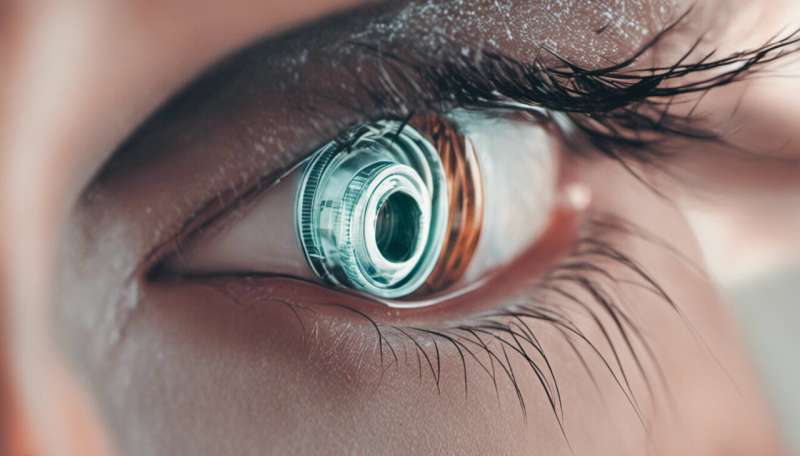This article has been reviewed according to Science X's editorial process and policies. Editors have highlighted the following attributes while ensuring the content's credibility:
fact-checked
trusted source
written by researcher(s)
proofread
Emergency contraception: Here's what you probably don't know but should

Things don't always go to plan when it comes to sex. Sometimes condoms break (or are even forgotten altogether) and daily contraceptive pills can be missed. Whatever the reason, if you need to prevent an unplanned pregnancy you might decide to use emergency contraception.
There are three main options for emergency contraception: levonorgestrel tablets (known as Levonelle in the U.K. and Plan B in the U.S.), ulipristal tablets (EllaOne in the U.K. and Ella in the U.S.) and having a copper intra-uterine device (IUD—sometimes called the coil) fitted.
In the U.K. and U.S., you can get levonorgestrel and ulipristal from pharmacies. In U.K. pharmacies, there's typically no charge if it's offered as part of an NHS service. In other parts of the world, levonorgestrel is often easier to access than ulipristal. For emergency IUD fittings, you need to go to a contraceptive and sexual health clinic, or your GP or gynecologist.
How does it work?
Although we often call emergency contraceptives "the morning-after pill," the hormonal pill options can be taken up to five days after unprotected sex. The IUD can sometimes be used even later.
Levonorgestrel and ulipristal both work by delaying ovulation. This means that if there are sperm inside the fallopian tubes, there won't be an egg for them to meet and fertilize.
Ulipristal is more effective when ovulation is expected within a day, as it can still delay the release of an egg even after the ovulation process has started (when levels of a hormone called luteinising hormone start to rise). Levonorgestrel can't delay ovulation once this starts.
In a typical menstrual cycle, you're most at risk of pregnancy on days nine to 14. But even if you're more than halfway through your typical monthly cycle, these tablets can still work. This is because you can't actually calculate when precisely ovulation has occurred until the next time your period arrives—so it's better to get help than spend time stressing at home.
The IUD works by making the environment within the uterus unfriendly to sperm, and so prevents the sperm fertilizing an egg that may have been released. It can be inserted up to five days after the earliest date you could have ovulated. For example, if you usually have 28 day cycles, you could use this up to day 19 (18 days after the day your last period started).
It's important to note that all of these methods are contraceptives, and don't cause abortions. If you're already pregnant, these won't stop a pregnancy.
Emergency contraceptives also cannot protect against sexually transmitted infections (STIs)—so if you think you've been exposed to one, it's important to visit a sexual health service or your doctor.

How effective is it?
The IUD is over 99% effective at preventing pregnancy, even when used as an emergency contraceptive. The coil can also be left in as a regular method of contraception afterwards.
While it's the most effective form of emergency contraception, it can be uncomfortable or even painful to have an IUD fitted. It's also somewhat less convenient than popping to a local pharmacy for a pill or using GP or online doctor services.
Ulipristal can be taken up to five days after unprotected sex. It's at least 95% effective at stopping pregnancies when taken within this time frame.
Levonorgestrel is 95% effective at preventing pregnancy if taken within 24 hours of unprotected sex. But this drops to 58% effectiveness if taken between two and three days after unprotected sex.
Depending on the point in your cycle when you had unprotected sex, ulipristal is often a better option. But both tablets are up to 95% effective at stopping pregnancies when taken soon after unprotected sex.
Levonorgestrel and ulipristal are preferably only taken once in each monthly cycle, as they are possibly less effective if used more than once. It's also important to continue with other forms of contraception, such as condoms or the contraceptive pill, until your next period arrives—ulipristal can reduce the effectiveness of some contraceptive pills, so speak to your health care provider about taking it.
In my practice as a community pharmacist, I always prefer to recommend ulipristal because of its longer period of effectiveness. It is more expensive though, and so sometimes it isn't always available as part of a free service. Both levonorgestrel and ulipristal are available without prescription in the U.K.
Certain medical conditions (especially those affecting your gastrointestinal system, such as Crohn's) and medications (such as antiepileptic drugs) can affect how well the pills work. In this circumstance, it's worth speaking with a doctor about your options as an IUD may work better for you.
What should you expect?
Nausea and vomiting are the most common side effects from taking the morning-after pill. It may also cause your next period to begin earlier or later than normal. Some people have also reported headaches or dizziness.
The IUD can make periods heavier or more painful. This often subsides after three to six months if you have chosen to keep it in.
Ectopic pregnancy (when a fertilized egg implants in a fallopian tube) may be possible if emergency contraception fails. If you have lower stomach pain (even if your period arrives), it's important to seek immediate help as this can be very serious.
If your period is more than seven days late or is shorter or lighter than normal, you should take a pregnancy test to check the emergency contraception has worked.
There's zero shame in using an emergency contraceptive if you need it. Just remember it's less effective than regular forms of contraceptives, so only use it as a backup plan. It's also worth noting that emergency contraceptives have no effect on long-term fertility and can be used even if you plan to have children later on.
This article is republished from The Conversation under a Creative Commons license. Read the original article.![]()




















